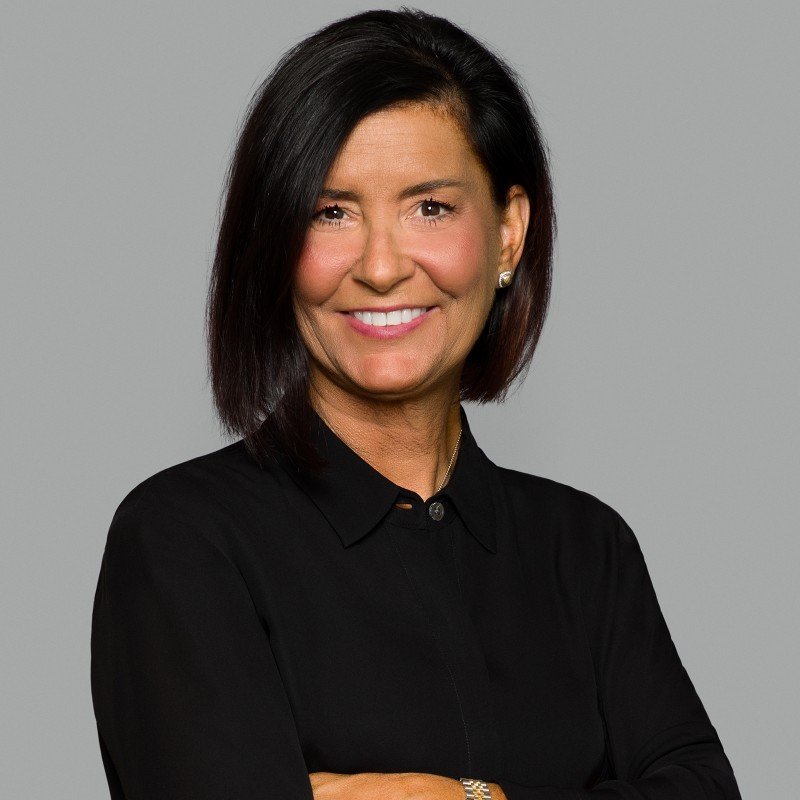LE: So, let's start with your career? How did you get here?
SK: Food has played a significant role in my work life since my first job at a Jewish deli-bakery in Montreal when I was 15, where I handled various tasks, such as baking rolls and making chopped liver. No joke. During summers, I worked at Kraft, where my mom was employed for 26 years. I began by entering handwritten orders on a computer, learned UPC codes for Kraft products, and later managed pallets in the distribution center.
After graduating from McGill University, I worked as a restaurant manager and then as an area supervisor in sales for a US accessories company during Walmart's Canadian expansion. This role gave me valuable experience in merchandising and sales.
In 1996, I joined Kraft's sales team in Toronto and spent 20 years progressing through different sales roles, eventually becoming Customer Vice President, managing most of the customer portfolio heading up regional accounts such as Metro, FCL, Save-on-Foods, Safeway and finally leading the Loblaw team.
When Heinz bought Kraft, I stayed for another year before seeking new opportunities. Eventually, I was presented an opportunity with UNFI Canada, which very much aligned with my personal values and presented a chance to lead a sales organization. At that time, UNFI Canada was facing struggles and lacked a proper sales structure. I was hired to organize and structure the sales organization for success, catering to local brands and entrepreneurs.
Now, with seven years under my belt, and and nearly three in my current position as President, I've built my own team and embraced the constantly changing products and industry. I thoroughly enjoy my work and am excited about being part of this industry.
LE: Historically there have been more men at the helm of food companies, but more women are starting to hold executive positions in the sector.
SK: The grocery industry has been, and remains, predominantly male-dominated. However, I have never considered this a significant challenge. I have established strong relationships with both male and female retailers. Most of the men I have worked with in my Kraft role and my current position have been supportive and nurturing.
Where I initially struggled was in finding my voice within the company, especially as the first female Customer Vice President at Kraft. I was the only woman at the table, apart from my HR counterpart, for a couple of years. Finding my voice in meetings was challenging, but I had a supportive boss who served as a mentor. He valued women, promoted them, and was a true champion for me.
It takes considerable effort to find one's voice, continually work on self-improvement, and avoid taking things too personally. A significant lesson for me has been to confidently express my thoughts and opinions.
LE: What are some of the leadership qualities that have led to your successes?
SK: A key quality is transparency. Embracing open and honest feedback from my superiors has been crucial. It's important to accept the perceptions others have of you, regardless of whether you agree with them. Women, in particular, can sometimes feel frustrated about how they're viewed, and understandably so. However, understanding and accepting these perceptions allows you to move forward, learn from them, and grow.
I used to argue and push back without truly listening to feedback. This is a pattern I've observed in both men and women. Acceptance and receptiveness to feedback are vital, and if you're consistently learning and developing yourself, you'll ultimately become stronger than if you had simply pushed back.
LE: …That willingness to hear what they're saying…
SK: Absolutely. As women, we sometimes get so caught up in what's being said and the fact that we're a minority, that we don't listen to how we're being perceived. But perception is reality, regardless of whether it's right or wrong, and no matter who's speaking or perceiving it - male or female. So, vent about it later if needed, but in the moment, accept the feedback and learn from it.
LE: ...As opposed to getting emotional or defensive.
SK: Precisely. Before I held more senior roles, I didn't receive open feedback from my male managers. It wasn't until someone candidly addressed my shortcomings that I took notice. This feedback came at an opportune time in my career, pointing out that I wasn't acting very leaderlike, always pushing back, not embracing roles or opportunities, and lacking patience and composure. When I finally heard this, I appreciated the straightforward approach, as difficult as it was to hear. By working on these aspects, I significantly improved and could provide better feedback, advice, and coaching to others. My whole demeanor and attitude changed for the better.
LE: You don't know what to correct if somebody doesn't tell you.
SK: To me, feedback, transparency, and authenticity are the most important aspects, along with accepting feedback and continuously learning. I look for these leadership qualities in individuals. My current leadership team consists of people who share these values. They're strong, independent, and open to feedback, leading to a balanced and diverse team.
LE: It's interesting to talk about diversity. People automatically assume it's gender, or it is ethnicity, but more times than not it’s diverse experiences that are important. So you don't have everybody saying the same thing around the table. Right?
SK: One piece of advice I give new leaders is to 'be in the market where your customer resides.' Attend every customer meeting, supplier meeting, and industry networking event you can. Learning from your customer's markets and understanding their businesses makes you a better leader by broadening your perspective. It demonstrates your willingness to get your hands dirty and not just hide behind your desk. This approach earns you respect from your associates and within the industries you participate in. Although it's time-consuming and involves travel, it truly makes a difference.
LE: …And then you can speak authentically, and have a better idea of the issues that your staff is facing. So we talked about the leadership qualities, so what changes have you noticed over time, in this industry?
SK: One significant change is defying social expectations, especially for women. As organizations evolve, it's crucial for women to challenge expectations and stand out. We see more female entrepreneurs and leaders stepping up and making a difference, embracing the new.
Women are no longer struggling as much to be taken seriously. Today, more women have seats at the table, and society has become more accepting of diversity.
Another change is "owning your accomplishments." The world has evolved, and women are now more open to claiming their achievements and speaking up about them, unlike a decade ago when they might have shied away from doing so.
LE: …Taking supporting roles, instead of being leaders.
SK: Another constant is the importance of building a support network around you, regardless of gender. There's a lot to be said about that. Balancing business and family life remains a challenge in my organization, and the COVID pandemic further complicated this balance by blurring the lines between home and work. I believe that men, just as much as women, are seeking that same balance.
To me, work-life balance isn't the right term; it's about making choices based on what's important to you and prioritizing your values. Work is part of my life, and I've made sacrifices to make it work for me. My husband retired early so I could pursue my career, and he took on the responsibilities at home, which wasn't always easy for him. This arrangement might not work for everyone, but finding balance can be challenging, depending on your core values.
LE: That word “balance” is elusive. It means a lot of things to a lot of people. I liked the way you positioned it as choice.
SK: I learned that from Irene Rosenfeld, who I greatly respected. When she was at Kraft and I was a sales rep, she spoke at one of our women's integrated network events. She mentioned how her husband's consulting job allowed him to work from home while she traveled. This taught me that to be in her position, you can't truly have "balance." She made choices, like hiring a nanny and arranging transportation for her kids, and that advice stuck with me early in my career.
LE: So we have a couple more questions. Do you have any advice for those starting out in the industry?
SK: First, I encourage everyone to set goals. It's crucial to have a clear idea of what you want to achieve. In the grocery industry, knowing your goals helps you make more strategic decisions about your career path. Also, consider your values, as they help define your goals and the ultimate career path you want to take.
LE: Absolutely.
SK: Another key aspect is continuous learning. Read constantly, seek advice, ask questions, and get involved in networks like the Women's Network “Next-up” in Toronto. Embrace training opportunities, and don't dismiss a job just because it doesn't sound exciting. It may not be your ideal role, but consider it another opportunity to grow.
In addition, I always stress the following: Build your network, embrace diversity and inclusion, and maybe most important, stay customer focused. Post COVID, customer service has gone by the wayside. So how do you stay really focused on your consumers? Understand their needs, ask them lots of questions, and always be listening to them. I think that's all very, very important.
LE: So what does the future hold for the plant-based foods industry?
SK: The plant-based industry is expected to keep growing, with more consumers adopting plant-based diets for various reasons, such as health benefits, environmental advantages, and ethical concerns. Research projects the market will grow about 12% from 2021 to 2028, indicating that the trend is here to stay. The industry's growth is driven by factors like environmental impact awareness, concerns about animal agriculture, rising health issues, and the availability of a broader range of plant-based options. I hope to see Canada catch up with other countries, despite occasional government-related slowdowns. There are reasons for certain regulations in Canada, which contribute to a healthier society, but they can sometimes hinder innovation.
Many food companies, both established and start-ups, are heavily investing in plant-based products and developing innovative alternatives. Governments worldwide are introducing policies to support this growth, with more subsidies available to companies. We aim to help entrepreneurs innovate through our Next program, which mentors and develops small companies, many of which are plant-based. This approach allows us to showcase more plant-based innovation in Canada. Overall, the future looks promising.
LE: My words exactly!
SK: I think we'll see a lot of growth and innovation in the coming years. I really do.
LE: Thank you Stacey, this has been great.






